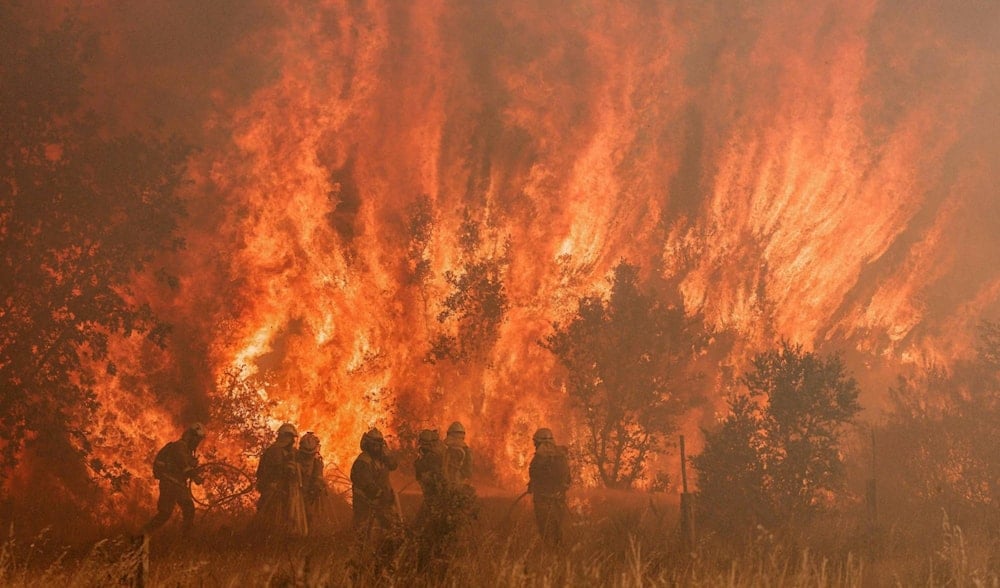Severe wildfires erupt in Spain amid rising temperatures
The two wildfires have been classified as "severe."
-

Firefighters at the site of a wildfire in Pumarejo de Tera near Zamora, northern Spain, on June 18, 2022. (AFP)
Hundreds of firefighters have been deployed alongside waterbomber planes in an effort to contain two large ongoing severe wildfires in eastern Spain that have been raging since Tuesday, causing the country to be on high alert for fires amid the heatwave.
The "fire is evolving favorably," firefighters said, following all-night efforts to contain the wildfire and urging emergency services to evacuate hundreds of villagers from their homes in Benasau, the eastern region of Valencia, as a precaution.
The second wildfire broke out in the inland region of Cuenca, burning through 1,500 hectares of vegetation since Tuesday.
AEMET, the country's weather forecaster, predicted maximum temperatures of 43-44 C in areas around Spain on Wednesday with an expected peak day of a heatwave. Meanwhile, the interior minister warned of an extreme risk of wildfires igniting across the nation.
The Barcelona-Fabra observatory in Catalonia beat its previous record for a high temperature of 39.8 C set in July 1982, registering an all-time high temperature of 40C on Tuesday.
This is the third heatwave Spain has experienced within the last weeks.
Nearly all oceans hit with 'unusual warmth', warns of mega storms
An esteemed NOAA expert cautions that nearly every ocean on Earth is experiencing "unusual warmth", which has contributed to the intense heat that has scorched a large portion of the Northern Hemisphere this summer.
Stats NZ's Stuart Jones said in a statement last week, "Even small rises in temperature can disrupt marine ecosystems, cause some species to relocate, and increase disease risks," adding, "It also contributes to sea-level rise as the warmer water expands."
The Atlantic region, where the most dangerous storms of this type usually form, is seeing record-warm ocean temperatures, which hurricane analysts say might result in a very busy hurricane season. Some of those fears came true with Hurricane Beryl, which broke many early season records.
Zack Labe, a researcher at NOAA's Geophysical Fluid Dynamics Laboratory, explained in an email that "this year has observed truly remarkable spatial coverage of above-average sea surface temperatures."
"The record warmth globally over the last year has been felt both in the atmosphere and in the ocean, which can be directly linked to the influences of human-caused climate change," he added.
June, in fact, ushered in a record-breaking 15 months of record-breaking ocean temperatures, and July may break that streak with the second-warmest rating.
The world is experiencing its hottest three days on record, starting on Sunday, due to the abnormally warm waters.

 3 Min Read
3 Min Read









